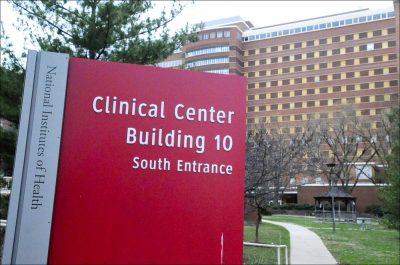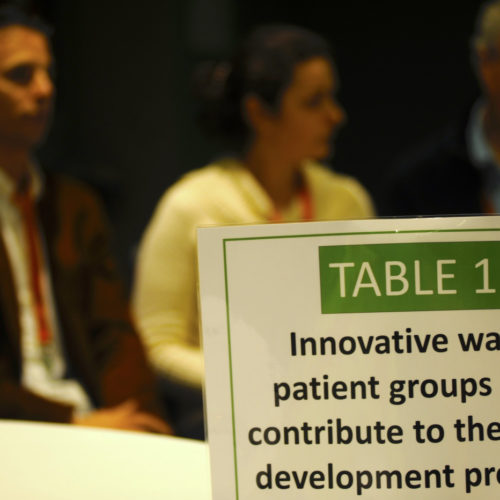This post was originally published on this site Gamida Cell and Editas Medicine have entered a partnership to explore the potential of using gene-editing technology to enhance the activity of certain immune cells against blood and solid cancers. Under the terms of the agreement, the companies will test Editas’ CRISPR technology as a means to engineer Gamida’s…
Author: Chris
It’s Off to the Races for eRace Cancer’s 78-year-old Founder and Multiple Myeloma Survivor
This post was originally published on this site In 2003, Don Wright received a daunting diagnosis of multiple myeloma. But not only has the 78-year-old survived, he has thrived. He’s since run 100 marathons, and is preparing for June’s National Senior Games. The founder of eRace Cancer, a social media campaign to educate patients about advances…
Ninlaro Maintenance Delays Disease Progression, Death in Myeloma Patients, Phase 3 Trial Shows
This post was originally published on this site Multiple myeloma patients who receive Ninlaro (ixazomib) maintenance after responding to their initial treatment live longer without their disease worsening or returning than patients given a placebo, a Phase 3 clinical trial shows. The TOURNALINE-MM3 trial (NCT02181413), where Ninlaro reduced the risk of disease progression or death by…
International Myeloma Foundation Gears Up for March, Myeloma Action Month
This post was originally published on this site To raise awareness of multiple myeloma and efforts to cure it, the International Myeloma Foundation (IMF) is gearing up for the start of Myeloma Action Month (MAM) on March 1. Hoping to involve patients and their families and the myeloma community at large, this year’s activities will focus…
Low-dose Photon Irradiation May Help Malignant Mesothelioma Cells Spread, German Study Warns
This post was originally published on this site Low-dose photon irradiation, commonly used in radiotherapy, potentially helps malignant pleural mesothelioma (MPM) cells spread, warns a study by Germany’s University of Heidelberg. The study, “Low-dose photon irradiation induces invasiveness through the SDF-1α/CXCR4 pathway in malignant mesothelioma cells,” appeared in the journal Oncotarget. It was based on research led by…
Blood MicroRNA Levels May Help Diagnose MPM and Asbestosis, Pilot Study Finds
This post was originally published on this site Researchers have found that patients with malignant pleural mesothelioma (MPM) and asbestosis — a chronic lung disease caused by asbestos inhalation — have low levels of certain microRNAs (miRNAs) in blood and tissue samples, indicating that such miRNAs could be used as biomarkers to diagnose these diseases. miRNAs…
Risk of Malignant Mesothelioma Plateaus Four Decades After First Asbestos Exposure, Italian Study Reports
This post was originally published on this site The risk of developing or dying from some cancers increases steadily over time. Scientists thought that was the case with malignant pleural mesothelioma, too, but an Italian study shows the risk plateaus four decades after workers are exposed to asbestos. The risk of peritoneal mesothelioma, on the other…
NIH Rare Disease Day Highlights Joint Networks Advancing Array of Research
This post was originally published on this site Rare diseases affect about 30 million Americans — roughly the same number as those with type 2 diabetes. Yet only 5 percent of the estimated 7,000 rare diseases known to science have cures or treatments approved by the U.S. Food and Drug Administration (FDA). Raising awareness of those…
WODC 2019 Organizers Expect 1,200 to Attend Rare Disease Conference in April
This post was originally published on this site The world’s biggest gathering of rare disease researchers, patient groups, pharmaceutical executives, and government officials is planned for April 10–12 in a Washington, D.C., suburb. Some 1,200 people have already registered to attend the World Orphan Drug Congress (WODC) USA 2019, set to take place at the Gaylord…
Vienna to Host RARE2019 Meeting on Rare Diseases
This post was originally published on this site About 100 scientists, researchers, pharmaceutical executives, and others will converge on Austria’s capital city early next month for the 2nd International Congress on Advanced Treatments in Rare Diseases. The March 4-5 meeting, to take place at the Hilton Am Stadtpark Vienna, features 27 speakers on a variety…











